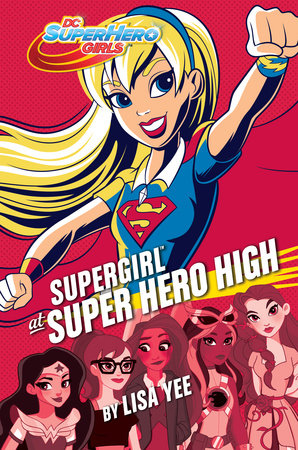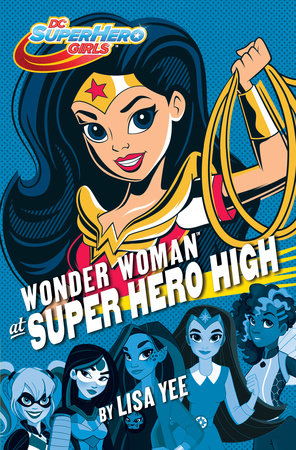The Right Book, for the Right Child, at the Right Time: The Hurdles and Joys of Raising Readers
by Lisa Yee
Every night before bed, my mother and I would snuggle as she read aloud to me. Later, when I learned to read, I’d read to her. If I was lucky, she’d fall asleep and then I could keep turning the pages late into the night.
When I got older and was reading novels, I had a set bedtime. Often I’d be surprised to find my mom standing in doorway saying, “Lisa, time to go to sleep.”
“Just ten more minutes,” I’d beg.
“Just ten,” she’d say, though she was generous with the time.
When my ten-ish minutes was up, she’d come back to say goodnight and turn off the lights. After she left, I’d get up and close the door, then I’d hold my breath, listening to see if anyone was near. When I was sure it was safe, I’d reach for the flashlight I kept hidden under my bed, bury myself under the covers, and continue reading.
Can you blame me? You know what it’s like to be in the middle of a book and need to know what happens next, right? Would the Borrowers escape? Would Piglet face a Heffalump? Would Nancy Drew figure out the secret of the old clock? I identified with the characters I met in books, they became my friends, my family. When I read Honestly, Katie John! by Mary Calhoun, I decided that when I was a mom, I’d name my daughter Katie.
Fast forward a couple decades. Every night before bed, I’d read to Katie. Like me, my daughter loved books. We were regulars at the library and local bookstores. When Katie was eight she discovered Harry Potter and her reading ramped up to a feverish pace. This child, who hated getting up in the morning, set her alarm for 5:00 AM so she could read before school. She loved the Harry Potter series with all her heart. She still does.
When my son was born, naturally I assumed he’d be a reader too. Like his sister, he loved his bedtime stories. I would let him pick two books, and I’d pick one. Favorites picture books included Chugga-Chugga Choo-Choo, Where the Wild Things Are, and Goodnight Moon — “In the great green room…”
I always read to my son, and sometimes, when I’d ask, we would switch roles. I’d close my eyes and listen to him read to me. Imagine my surprise when his first grade teacher called me in to talk about his reading abilities. “Watch him,” she said. “See if he’s actually looking at the words on the page.”
I couldn’t believe it. He wasn’t reading, he had memorized the stories. My son only had to hear a book once or twice, and he could recite it. When he “read” often he wasn’t even on the page he was reciting from.
The school reading specialist, caring teachers, and a diagnosis of ADHD informed us of what to do next. Everyone worked very hard, but no one worked harder than my son. It wasn’t that he didn’t want to read, it was that he couldn’t. I remember the day when everything finally clicked. He chose a biography of his idol, Tony Hawk, from the Scholastic Book Fair, and read it from cover to cover. Again and again. It was the right book, for the right child, at the right time.
From that book on, there was another reader in the family. My son rivaled my daughter in his love for stories. All three of us had so many books that there was no room left on our bookshelves. We’d borrow each other’s books and conveniently “forget” to return them. Whenever a new Harry Potter was released, we’d do the camping-out-for-the-midnight release, and purchase three copies since it was imperative that the book be read immediately.
Today, my daughter works in children’s publishing as an assistant editor. My son is in college studying to be a writer and filmmaker. I am an author. One of my books, Stanford Wong Flunks Big-Time, is about a boy who hates reading and would rather play basketball. When he fails his English class he has to retake it over the summer. A stern but compassionate teacher reads aloud to his students — stories like Shirley Jackson’s “The Lottery” — only he never reads the last pages. Instead, he stops right before the dramatic endings. If his students want to know what happens next, they have to read it for themselves. Later, a perceptive librarian gives Stanford his own copy of The Outsiders by S.E. Hinton. It is the first book he reads that wasn’t assigned for class. It was the right book, for the right child, at the right time.
Recently a father told me that his daughter, age eight, had never finished a book before. But when she read my novel, Supergirl at Super Hero High, she proudly told him she read the entire book. He wasn’t sure if she really had, so he skimmed through the pages, asking her questions. When he told me that she answered every one of them, we both teared up.
To be able to lose yourself in a book is bliss. Stories introduce us to people we might never meet, making us laugh and cry, and in the process enrich our lives.
Not long ago, my son said, “You probably don’t know this, but when I was younger and supposed to be sleeping, I’d be reading books with a flashlight.”
He looked so pleased with himself when he said this. I nodded and smiled back at him, then replied, “Who do you think bought you the flashlight?”
-
By the Author:
-


